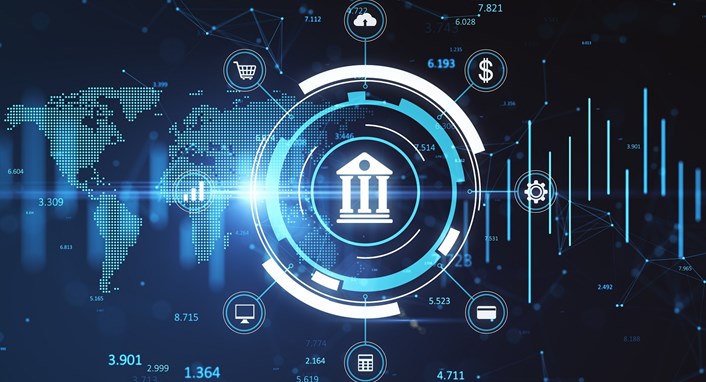
Open banking explained: benefits & how it works
Open banking: definition and how it works
Open banking represents a transformative shift in the financial services landscape, offering unprecedented opportunities for both consumers and businesses. By leveraging the power of technology, particularly application programming interfaces (APIs), it allows financial data to be securely shared between banks and third-party providers.
This interconnectedness promotes innovation, enhances the customer experience, and fosters a more competitive market. In this article, we delve into the definition of open banking, explore how it works and examine its benefits, safety considerations and future potential.
Defining open banking
Open banking is a practice where banks and other financial institutions provide access to consumer banking, transaction and other financial data to third-party service providers through APIs. This data sharing is done securely and only with the explicit consent of the consumer.
The goal of open banking is to enable consumers to leverage their financial data to access better services, more competitive rates and innovative financial products.
The concept emerged from the need to enhance transparency, promote competition and foster innovation in the financial sector. By allowing access to a customer's financial information, open banking helps third-party providers create tailored solutions that can better meet individual needs.
How open banking works
Open banking operates using APIs, which are essentially software intermediaries that allow different applications to communicate with each other. Here’s a step-by-step look at how it works:
- Customer consent. The process begins with customers granting permission for their bank to share specific financial data with a third-party service provider.
- Data sharing. Once consent is provided, the bank uses APIs to securely transmit the requested data to the third-party provider.
- Third-party services. The third-party providers use data to offer a variety of services, such as financial planning tools, budgeting apps, loan comparison platforms, among others.
- Enhanced financial products. By analyzing the shared data, third-party providers can recommend personalized financial products and services to the consumer.
- Security and regulation. To ensure security, all parties involved must adhere to strict regulatory standards. These principles are designed to protect consumer data and ensure that it is used only for the intended purposes.
Benefits and advantages of open banking
Open banking brings a transformative approach to the financial sector, fostering an ecosystem where data can be securely shared and used to enhance services. This framework paves the way for significant improvements in how financial institutions, third-party providers and consumers interact.
By promoting transparency and competition, open banking encourages financial institutions to innovate and offer better products and services. Consumers benefit from more personalized financial solutions, increased convenience and greater control over their financial data.
Benefits for businesses
Open banking offers numerous advantages for businesses, enabling them to enhance their financial management and streamline operations:
- Increased competition. Traditionally, the banking sector has been dominated by large, established institutions. Open banking levels the playing field by granting new players access to the same data, allowing them to innovate and offer more affordable alternatives.
- Enhanced offerings. The competitive pressure from open banking forces traditional banks to improve their services. This shift leads to better digital solutions, providing businesses with more efficient and user-friendly options.
- Democratization of financial services. Open banking democratizes the financial landscape, enabling small and medium-sized enterprises to benefit from solutions and services that were previously out of reach.
- Great customer engagement. Businesses can offer tailored products that meet specific needs, enhancing customer satisfaction and loyalty.
Benefits for customers
On the other hand, open banking offers a wealth of benefits for consumers, transforming their banking experience and giving them more control:
- Banking in the palm of their hands. Gone are the days of standing in long queues or waiting for bank managers. Open banking, combined with digital services, brings the entire experience to the consumer's fingertips.
- Control over finances. Open banking shifts the balance of power from traditional banks to consumers, giving them more choice and control over their finances.
- Centralized information. Open banking centralizes all financial data in one place, allowing better financial management and decision making.
- Enhanced services. Open banking uses advanced analytics to provide personalized financial advice and recommendations.
Is open banking secure?
Security is a paramount concern in open banking, ensured by strict regulatory frameworks like the European Union's PSD2. Consumers must explicitly grant permission for data sharing, maintaining control over their information. Advanced security protocols, including encryption and strong authentication, protect data during transmission.
Additionally, third-party providers comply with data protection regulations such as the GDPR. While potential risks like data breaches exist, continuous advances in security technologies mitigate these threats, making open banking a secure option.
The future of open banking
The future of open banking is promising, with continued growth in innovation and competition expected. As technology advances, we can expect more personalized and efficient financial services.
Enhanced data analytics and AI will likely drive further improvements in the customer experience and financial product offerings. Open banking is poised to become a standard in the financial industry, fostering greater transparency, inclusion and empowerment for consumers and businesses alike.


